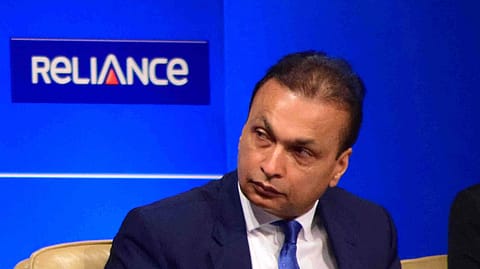R-Com gets TDSAT nod on spectrum sale
In some relief to the Anil Ambani-led telco, the appellate tribunal directed the telecom department to let the deal with Reliance Jio proceed without a bank guarantee.

There is an old adage: It isn’t over till it’s over. This appears to be especially true for the Anil Ambani-led Reliance Group, and its beleaguered telecom venture Reliance Communications (R-Com) in particular. The company, laden with a debt of around ₹46,000 crore, has made several attempts at reducing its leverage over the years but several spanners in the works have derailed the process repeatedly.
The latest hurdle is a contempt petition filed in the Supreme Court against R-Com by Swedish telecom equipment-maker Ericsson on October 1. Ericsson is one of R-Com’s unsecured creditors, to whom the telco owes money for services previously rendered. After much back and forth during negotiations, R-Com had earlier managed to settle the dispute with Ericsson by agreeing to pay ₹550 crore to the latter. This money was to come from the proceeds of R-Com’s proposed transaction to sell telecom assets to Anil’s elder brother Mukesh Ambani’s Reliance Jio.
According to the settlement with Ericsson, the dues were to be paid by September 30, a deadline that R-Com missed. The reason being that its deal with Jio is stuck as the Department of Telecommunications (DoT) has demanded a bank guarantee worth ₹2,900 crore on account of spectrum usage charges before giving its nod to the transaction.
Consequently, Ericsson moved the contempt petition against R-Com, even as the telco filed an application with the apex court on September 28 requesting for a 60-day extension of the deadline by which Ericsson’s dues need to be cleared.
Now, in a heartening development for R-Com, the Telecom Disputes Settlement and Appellate Tribunal (TDSAT) has stayed the DoT’s demand for the bank guarantee, vide an order dated October 1 and directed the government department to grant approval for trading spectrum, which will be essential to consummate the deal with Jio.
Technically, the TDSAT’s order may pave the way for the deal with Jio to go through. And if that happens, Ericsson and other creditors of R-Com may well get paid at least a portion of their dues. But practically, several challenges still abound.
First and foremost, the DoT reserves the right to move a higher court against the TDSAT order. This is an option it may well exercise if it genuinely believes that it stands to make close to ₹3,000 crore from the R-Com-Jio deal. Second, it remains to be seen whether Ericsson will continue to hold patience with R-Com and agree to a 60-day extension; or whether it will pursue the contempt petition in the Supreme Court, which may pose fresh challenges to the consummation of the deal, which is critical to addressing R-Com’s debt woes.